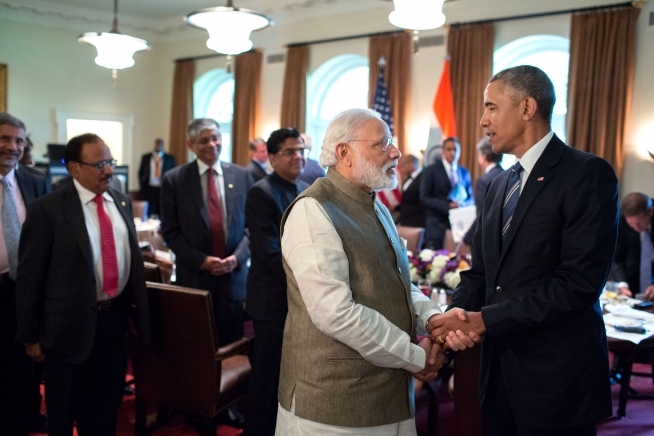Speed dating rocks. Don’t worry, this isn’t going to get icky. I’m talking about a session at LSE’s International Development Department where each researcher was given 3 minutes to pick out a big idea from their research, policed by a very annoying buzzer. It was a fantastic tour d’horizon, as well as very funny watching some of our more verbose colleagues barely get past their introductory remarks before the guillotine came down (metaphorically).
There were too many contributions for one blogpost, but here is a sample of some of the ones that stood out.

Naila Kabeer using the stories of men and women from a village she has been visiting since 1979 to try and develop a ‘grounded theory’ for why Bangladesh is such a positive outlier in terms of social progress and women’s rights (e.g. there is not a skewed sex ratio, unlike India)

Shirin Madon is trying to work out how India’s new biometric identity card system (Aadhar) is affecting local government’s ability to improve its capacity for planning in key application areas such as public distribution and fertiliser subsidy.
 Kathy Hochstetler is asking whether wind and solar power in South Africa and Brazil make for a good industrial policy. OK they make sense from an environmental point of view, but do they really create enough jobs and generate the vested interests required to take them to scale?
Kathy Hochstetler is asking whether wind and solar power in South Africa and Brazil make for a good industrial policy. OK they make sense from an environmental point of view, but do they really create enough jobs and generate the vested interests required to take them to scale?
 Joana Naritomi is working with the state government of Amazonas in Brazil to see if the new emphasis on getting value for money by improving competition in public procurement of food, medicines etc is actually leading to officials having to accept the cheapest tender, even if it comes with lower quality.
Joana Naritomi is working with the state government of Amazonas in Brazil to see if the new emphasis on getting value for money by improving competition in public procurement of food, medicines etc is actually leading to officials having to accept the cheapest tender, even if it comes with lower quality.
 David Keen is looking at ‘policy panics’ born of systems failures on issues such as terrorism and migration, and asking who benefits from the associated cloud of shame and blame.
David Keen is looking at ‘policy panics’ born of systems failures on issues such as terrorism and migration, and asking who benefits from the associated cloud of shame and blame.
 James Putzel is looking at cooperative rural land ownership in China, contrasting the history of successful land reforms in eg Japan and South Korea, which resulted in limiting land markets (eg ceilings on land ownership, restrictions on sales), with recent advice from the World Bank advocating markets as solution (eg individual land rights). He has found evidence in China that the rural poor benefit from cooperative land rights and the challenge is to democratise cooperatives rather than to privatise landownership.
James Putzel is looking at cooperative rural land ownership in China, contrasting the history of successful land reforms in eg Japan and South Korea, which resulted in limiting land markets (eg ceilings on land ownership, restrictions on sales), with recent advice from the World Bank advocating markets as solution (eg individual land rights). He has found evidence in China that the rural poor benefit from cooperative land rights and the challenge is to democratise cooperatives rather than to privatise landownership.
 Tim Dyson has a powder keg of a research project arguing that Amartya Sen’s famous analysis of the 1943/4 Bengal famine was profoundly wrong on both causes and consequences. Among other things, much of the demographic data used by Sen are seriously flawed because they were crudely reconstituted from registration statistics by people working in the West Bengal census office in the late 1940s, a fact which compromises their integrity
Tim Dyson has a powder keg of a research project arguing that Amartya Sen’s famous analysis of the 1943/4 Bengal famine was profoundly wrong on both causes and consequences. Among other things, much of the demographic data used by Sen are seriously flawed because they were crudely reconstituted from registration statistics by people working in the West Bengal census office in the late 1940s, a fact which compromises their integrity
 Anna Macdonald is looking at the role of magistrates’ courts in Northern Uganda, where she finds that local people actually prefer the lack of ‘due process’ that aid agencies typically moan about. Lack of due process means lots of time, bail payments, and periods in prison before trial that are often used as a form of punishment/revenge. Big implications for access to justice work.
Anna Macdonald is looking at the role of magistrates’ courts in Northern Uganda, where she finds that local people actually prefer the lack of ‘due process’ that aid agencies typically moan about. Lack of due process means lots of time, bail payments, and periods in prison before trial that are often used as a form of punishment/revenge. Big implications for access to justice work.
 Geoff Goodwin finds that as the state withdrew under structural adjustment, community water management organizations in Ecuador emerged into the space, but are now facing a resurgent state.
Geoff Goodwin finds that as the state withdrew under structural adjustment, community water management organizations in Ecuador emerged into the space, but are now facing a resurgent state.
 Pritish Behuria finds African governments (Rwanda) reintroducing industrial policy and import substitution under the new euphemism of ‘domestic market recapture’, for example by banning second hand clothes imports.
Pritish Behuria finds African governments (Rwanda) reintroducing industrial policy and import substitution under the new euphemism of ‘domestic market recapture’, for example by banning second hand clothes imports.
 Aico Nogueira from Brazil is pondering the contradiction that the Worker’s Party government institutionalized Brazil’s landless movement (the MST), after which the country made precisely zero progress on land reform
Aico Nogueira from Brazil is pondering the contradiction that the Worker’s Party government institutionalized Brazil’s landless movement (the MST), after which the country made precisely zero progress on land reform
 Benjamin Chemouni is also looking at Rwanda, trying to identify the role of ideas and ideology in shaping the actions of Paul Kagame’s ruling RPF. To try and separate them from the vested interests that have come with power, he is analysing the lyrics of songs of the liberation struggle (i.e. before taking power) in terms of ethnicity, forgiveness etc. How cool is that?
Benjamin Chemouni is also looking at Rwanda, trying to identify the role of ideas and ideology in shaping the actions of Paul Kagame’s ruling RPF. To try and separate them from the vested interests that have come with power, he is analysing the lyrics of songs of the liberation struggle (i.e. before taking power) in terms of ethnicity, forgiveness etc. How cool is that?
And of course, I banged on about the messages of my new book, How Change Happens, which I’m launching with Naila Kabeer at LSE on 1 November. See you there?
There were lots more, but I hope that even on this evidence, you’ll agree that the Department has a pretty fascinating greatest hits album in the works.






2 Comments